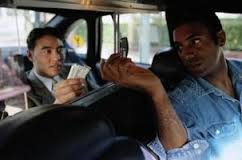Sometimes, it can be hard to find a job that suits you. There are so many things that you could do, and each of them requires a specific set of skills and qualifications before it becomes open to you. If you’ve settled on driving taxis as a potential career option, then here are some things that you need to know.
What the Role Involves
The concept of taxi driving is simple; you’re paid to pick passengers up and drive them to a destination of their choosing. However, the role is not solely restricted to driving: you’ll also need a good knowledge of your local area, the ability to talk to people you don’t know and money handling skills. It also helps to be fit and mobile, as it may be necessary to help passengers with luggage and assist those with limited mobility.
Types of Taxis
 There are two types of taxis in operation: licensed hackney carriages and licenced private hire vehicles.
There are two types of taxis in operation: licensed hackney carriages and licenced private hire vehicles.
Licensed hackney carriages, like the black cabs found in London, cannot be booked: passengers must hail them from the street or wait for them at a taxi rank. The fares they charge, and the geographical boundaries they operate within, are set by a local authority.
Licensed private hire vehicles, or minicabs, are not allowed to pick people up from the street and are forbidden from displaying a ‘taxi’ light on their roof. They must be booked by telephoning the minicab office they operate out of, which receives commission from each of their fares.
Types of Taxi Driver
There are two main types of taxi driver: taxi company employees and independent contractors.
Taxi company employees work for a taxi company, which can help to provide drivers with job and financial security. They receive a set salary and employment benefits such as paid holidays and sick pay. Being part of a company will also mean that they are on top of managing their fleet so they can be efficient and safe on the roads. For more on fleet safety, businesses can click this link to see how they can implement that for their own taxi company and their drivers.
Independent contractors are not on a company payroll; they’re the freelancers of the taxi world. They are free to work their own hours. They find jobs through a larger company, who they pay a fee to. They may either own their own vehicles, such as those available from Cab Direct, or lease a vehicle from the taxi company that passes jobs on to them.
Hours and Pay
Most taxi drivers begin their career on a salary of around 10,000 per year, although this is obviously influenced by the hours they work. Depending on whether or not you’re self-employed, pay largely be dictated by how much work you can find.
If you do choose taxi driving as a career, you’ll need to be prepared to put in long and often odd hours. The sector is busiest overnight and at weekends, which can mean that Friday and Saturday nights must be sacrificed in order to earn a living wage.
Necessary Skills and Qualifications
 Although no formal qualifications are needed to start a career as a minicab driver, a driving licence is a necessity, and different local authorities will each have their own rules on licensing conditions that must be met. Many of these will require you to take a DVSA taxi driving test before this will be granted.
Although no formal qualifications are needed to start a career as a minicab driver, a driving licence is a necessity, and different local authorities will each have their own rules on licensing conditions that must be met. Many of these will require you to take a DVSA taxi driving test before this will be granted.
The rules for hackney carriage drivers are slightly different. Those wishing to adopt this as a career must be over 21, have possessed a driving licence for a minimum of 12 months and have no criminal convictions for fraud, theft, violent or sexual offences. In the capital, they’ll also be required to pass the London Knowledge test.
Other desirable skills are:
- Social adeptness (friendliness, politeness and sociability are important skills to possess)
- A safe, sensible driving style
- Knowledge of the local area
- Money handling skills and basic mathematics.
Could taxi driving be for you?
